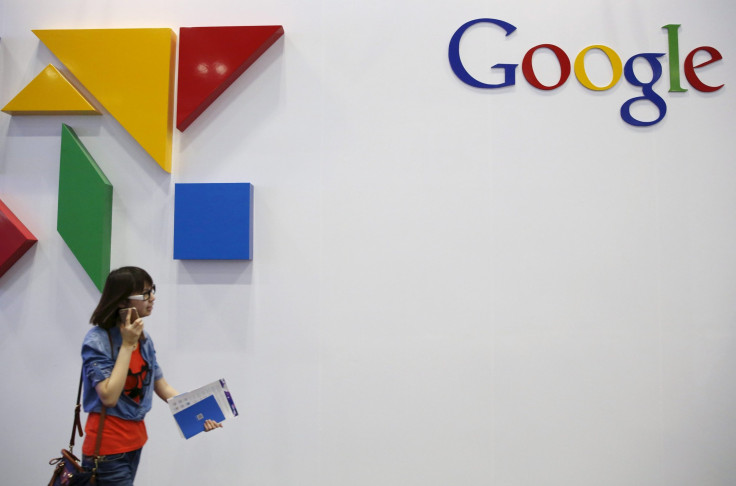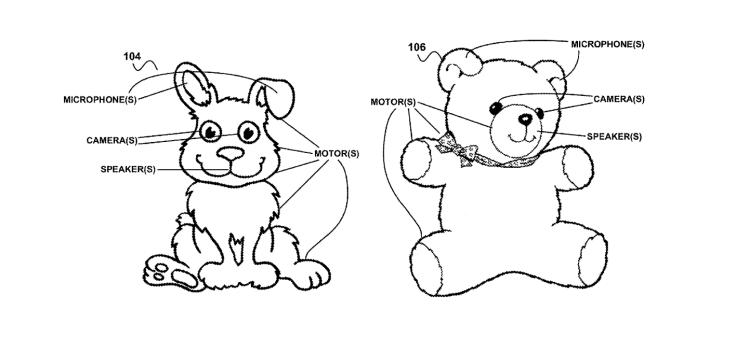Would You Put A Teddy Bear In Charge Of Your House? Google Thinks It's A Good Idea

A world full of smart teddy bears and artificially intelligent toys may soon be upon us, courtesy of Google. The U.S. Patent and Trademark Office on Thursday published a Google patent application for dolls capable of detecting and looking at users when spoken to as well as perceiving voice commands.
The patent describes robots that would be capable of picking up on social cues from humans, such as movements or spoken words, and then aiming their "gaze at the source of the social cue," the patent application reads. These "anthropomorphic devices" could then be given voice commands that the dolls could reroute to connected devices in a user's home, such as connected lights, a Nest thermostat or other so-called Internet of Things products.
"Imagine a teddy bear outfitted with sensors and cameras in your house. This teddy bear will rotate its head and look back at you if it senses you are looking at it," said Mikhail Avady of SmartUp, a legal startup that specializes in helping clients connect with lawyers. SmartUp were the first to spot the patent. "Once this happens, it can receive voice commands to control media devices in your home." It could, for example, turn on your music player.

Included in the patent application is an image of two dolls -- a teddy bear and another that is either a dog or a rabbit. Both include cameras and microphones to pick up social cues as well as motors to move their limbs.
Already, we've seen this kind of technology in sci-fi films. Steven Spielberg's "A.I. Artificial Intelligence," for example, includes a very intelligent teddy bear. And some of today's companies are also already starting to build and sell products like this. Apple has Siri while Amazon sells the Echo, which is a $199 speaker that listens to users commands and responds. Users can tell the Echo to play music or add products to their shopping lists, they can ask questions about things like sports or traffic or they can tell their Echo to turn off their smart Hue Philips lights.
Here's hoping Google builds us non-creepy, helpful assistant dolls and not out-of-control, havoc-wreaking menaces like Chucky.
Salvador Rodriguez is the International Business Times' Silicon Valley Correspondent. News tips? Email me here. Follow me on Twitter @sal19.
© Copyright IBTimes 2024. All rights reserved.






















